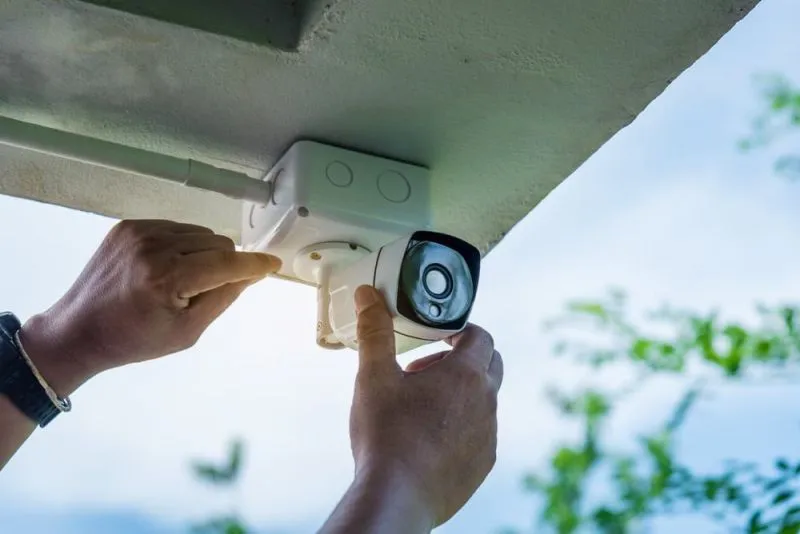Business
Dummy security cameras pros and cons

The market offers numerous fake security cameras for a very affordable price. Many small businesses and homeowners opt for this form of deterrence as they look so realistic. However, dummy cameras, besides appearing very realistic, have many disadvantages. Today`s matter of subject security guard patrol services experts will disclose the benefits and drawbacks of fake security cameras and what to consider before deciding on this type of security equipment.
Security cameras are usually enough to discourage vandals and thieves, especially when it comes to small private houses, small business properties, and businesses that don`t operate with significant money amount and value.
On the other hand, some people add dummy cameras to enhance their existing security systems.
What are dummy cameras?
Dummy cameras are fake security cameras intentionally designed to look like real ones. There are numerous fake cameras to choose from in various colors, sizes, and styles. Some dummy cameras have advanced features that mimic zoom or power-blinking light to increase their faithfulness with authentic cameras.
Pros of dummy cameras and when they are a good idea
Even though fake cameras are not efficient as real ones, it’s still better to have any camera than not have anything at all. Therefore, for those who can not afford real security cameras even having a fake one is a good idea. So, yes, dummy cameras can be a kind of security measure.
Also, adding a fake camera to other security equipment can be a proficient way to ensure another manner of safety, as no one will know that they are not real. Additionally, in terms of improving existing security systems, people opt for installing one real security camera in important spots and a few dummy cameras around the place, to create the impression that the place is all covered. Many businesses install fake cameras in offices, and break rooms and retail stores tend to place fake cameras in cash registrars and places with expensive merchandise. If you look for installing fake cameras along with real cameras, you should make sure that your fake cameras blend well with real ones by color and size so it wouldn’t be obvious that your cameras are dummies.
Fake security cameras are a good choice if you want to ensure that your valuables inside the house are safe from stealing. Placing dummy cameras inside the house in rooms where you keep valuable items can successfully discourage babysitters, parlormaids, service workers, and others from stealing something.
Fake security cameras are usually a choice of people who consider cameras as an intrusion element into peoples` private life. Therefore, fake cameras are a good solution that will ensure a some level of security while not going against your beliefs.
Another circumstance when people opt for fake cameras is when all neighborhood houses are equipped with a security camera. In this case, people usually don`t want to stand out, and fake cameras provide them the ability to stay low profile and unobtrusive.
The advantages of security cameras are:
- They are better than not having any security tool
- As their physical appearance is almost identical to real security cameras, from a distance no one will be able to whether your camera is real or fake. Thus, most burglars won`t take a chance to inspect if the camera is real or not, which is often enough to discourage potential intruders.
- Most of these cameras are inexpensive
- These cameras are easy to install, namely, easy to attach at any preferable spot. As they don’t include wires, receivers, or software, they don`t require professionals to install them, therefore you wouldn`t have to pay someone to set them to work.
Disadvantages of fake cameras
The main disadvantage of fake security cameras is the most obvious one – they are fake. Therefore, they are not able to provide any real kind of protection, rather just an appearance. This usually can not provide sound sleep for owners. Therefore, some people after installing a dummy camera still won’t feel safe, which is reasonable, and decide to invest in real security cameras.
Fake security cameras can not record and provide video or audio footage of accidents that might occur. Although even real cameras can`t prevent burglaries, brakings, and enterings they can provide video and sound footage that can be used in the law process or for a police investigation as evidence, and to provide identity recognition.
If your business is attractive to crimes or you keep valuable items in your home, having a fake camera is not a good idea. Sophisticated burglars are skilled to accredit the real from fake camera.
Summary
If you feel anxious knowing that your fake camera doesn’t provide any real protection it’s recommended to install the real one. Even though this might sound expensive, it actually doesn`t have to be like that. You don`t need a few cameras staggered in every corner of the property, instead, you can install the single one that will be proficiently placed to cover all access points. The well-through-out scheme requires minimum cameras and provides optimum security. Besides, having a real camera is always a safer bet than a fake one.
Kenneth is a proud native of sydney, born and raised there. However, he pursued his education abroad and studied in Australia. Kenneth has worked as a journalist for almost a decade, making valuable contributions to prominent publications such as Yahoo News and The Verge. Currently, he serves as a journalist for The Hear Up, where he focuses on covering climate and science news. You can reach Kenneth at [email protected].










